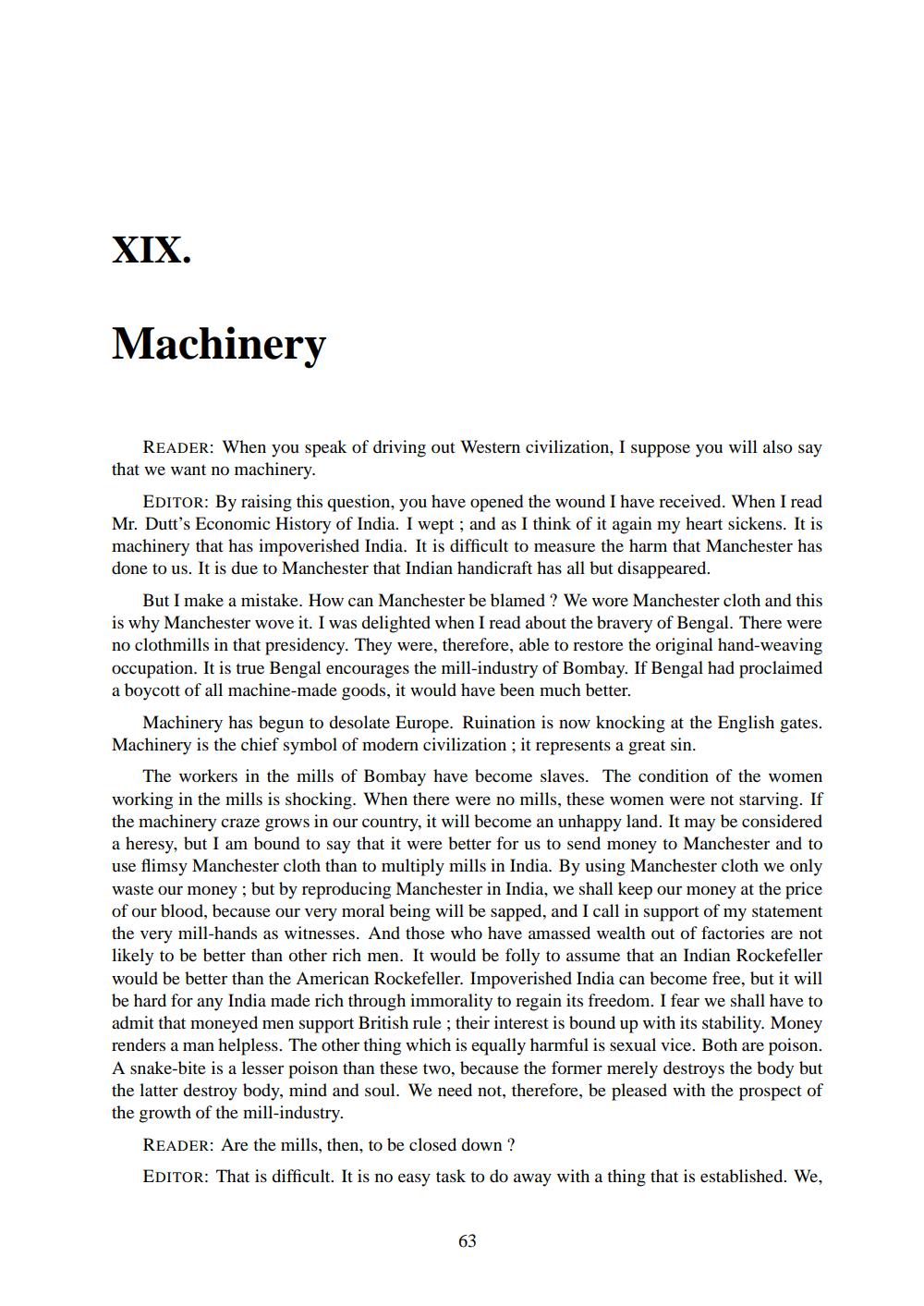________________
XIX.
Machinery
READER: When you speak of driving out Western civilization, I suppose you will also say that we want no machinery.
EDITOR: By raising this question, you have opened the wound I have received. When I read Mr. Dutt's Economic History of India. I wept, and as I think of it again my heart sickens. It is machinery that has impoverished India. It is difficult to measure the harm that Manchester has done to us. It is due to Manchester that Indian handicraft has all but disappeared.
But I make a mistake. How can Manchester be blamed? We wore Manchester cloth and this is why Manchester wove it. I was delighted when I read about the bravery of Bengal. There were no clothmills in that presidency. They were, therefore, able to restore the original hand-weaving occupation. It is true Bengal encourages the mill-industry of Bombay. If Bengal had proclaimed a boycott of all machine-made goods, it would have been much better.
Machinery has begun to desolate Europe. Ruination is now knocking at the English gates. Machinery is the chief symbol of modern civilization ; it represents a great sin.
The workers in the mills of Bombay have become slaves. The condition of the women working in the mills is shocking. When there were no mills, these women were not starving. If the machinery craze grows in our country, it will become an unhappy land. It may be considered a heresy, but I am bound to say that it were better for us to send money to Manchester and to use flimsy Manchester cloth than to multiply mills in India. By using Manchester cloth we only waste our money; but by reproducing Manchester in India, we shall keep our money at the price of our blood, because our very moral being will be sapped, and I call in support of my statement the very mill-hands as witnesses. And those who have amassed wealth out of factories are not likely to be better than other rich men. It would be folly to assume that an Indian Rockefeller would be better than the American Rockefeller. Impoverished India can become free, but it will be hard for any India made rich through immorality to regain its freedom. I fear we shall have to admit that moneyed men support British rule ; their interest is bound up with its stability. Money renders a man helpless. The other thing which is equally harmful is sexual vice. Both are poison. A snake bite is a lesser poison than these two, because the former merely destroys the body but the latter destroy body, mind and soul. We need not, therefore, be pleased with the prospect of the growth of the mill-industry.
READER: Are the mills, then, to be closed down ? EDITOR: That is difficult. It is no easy task to do away with a thing that is established. We,
63




